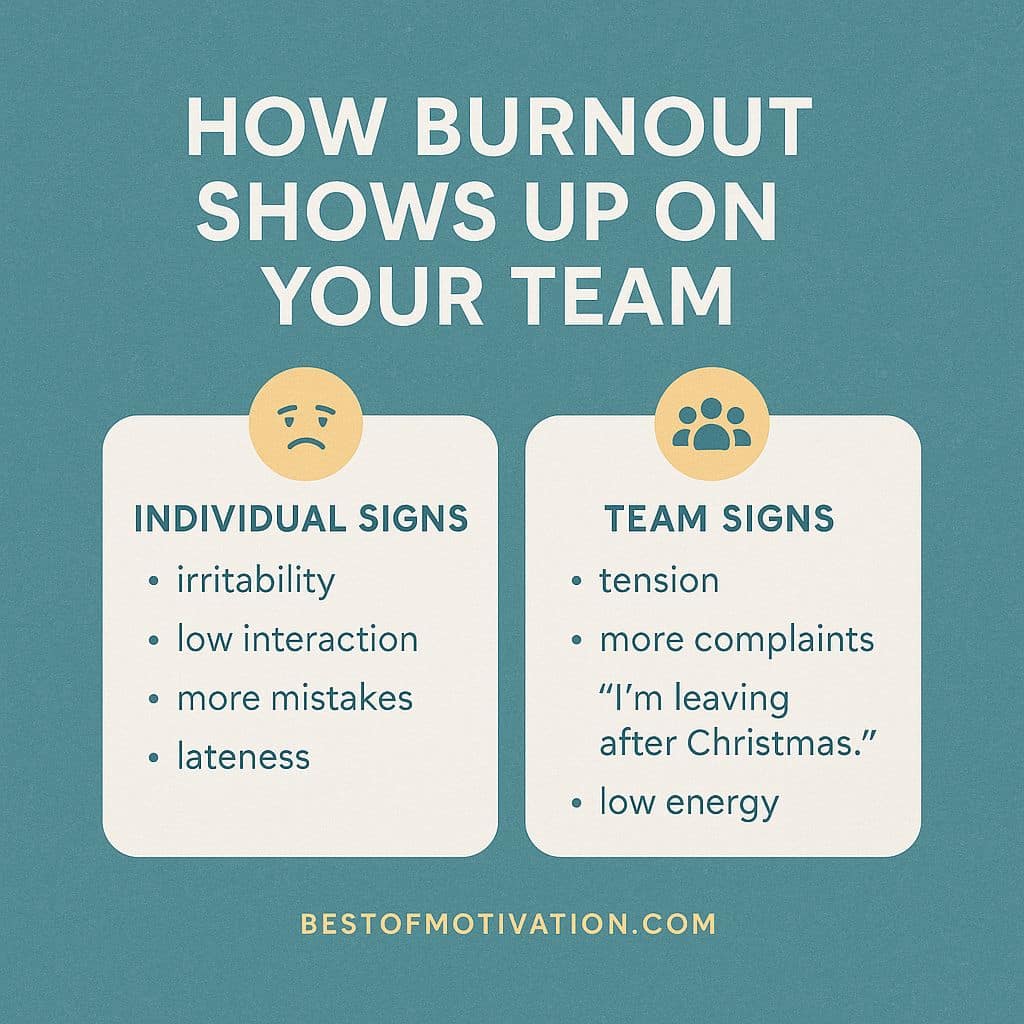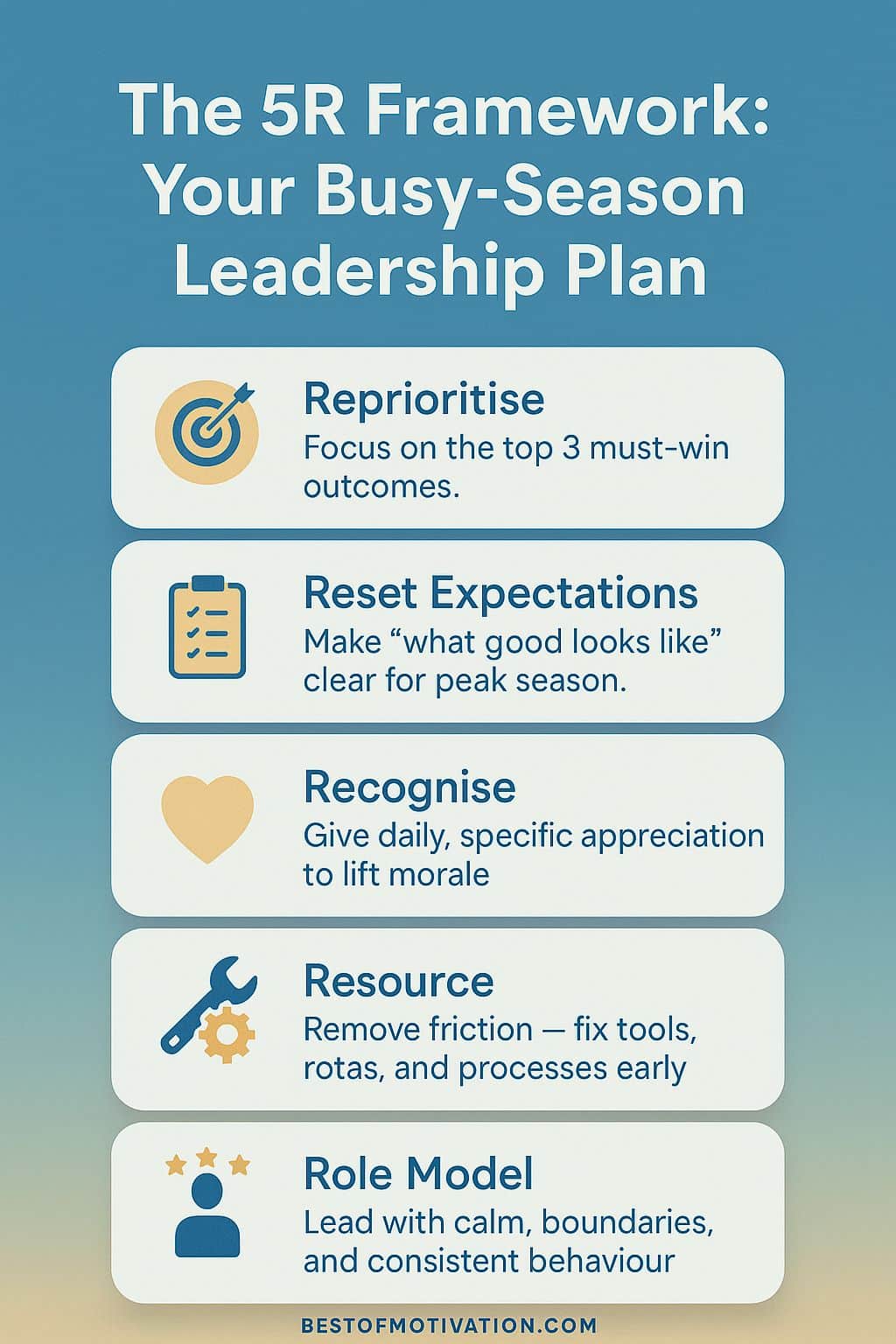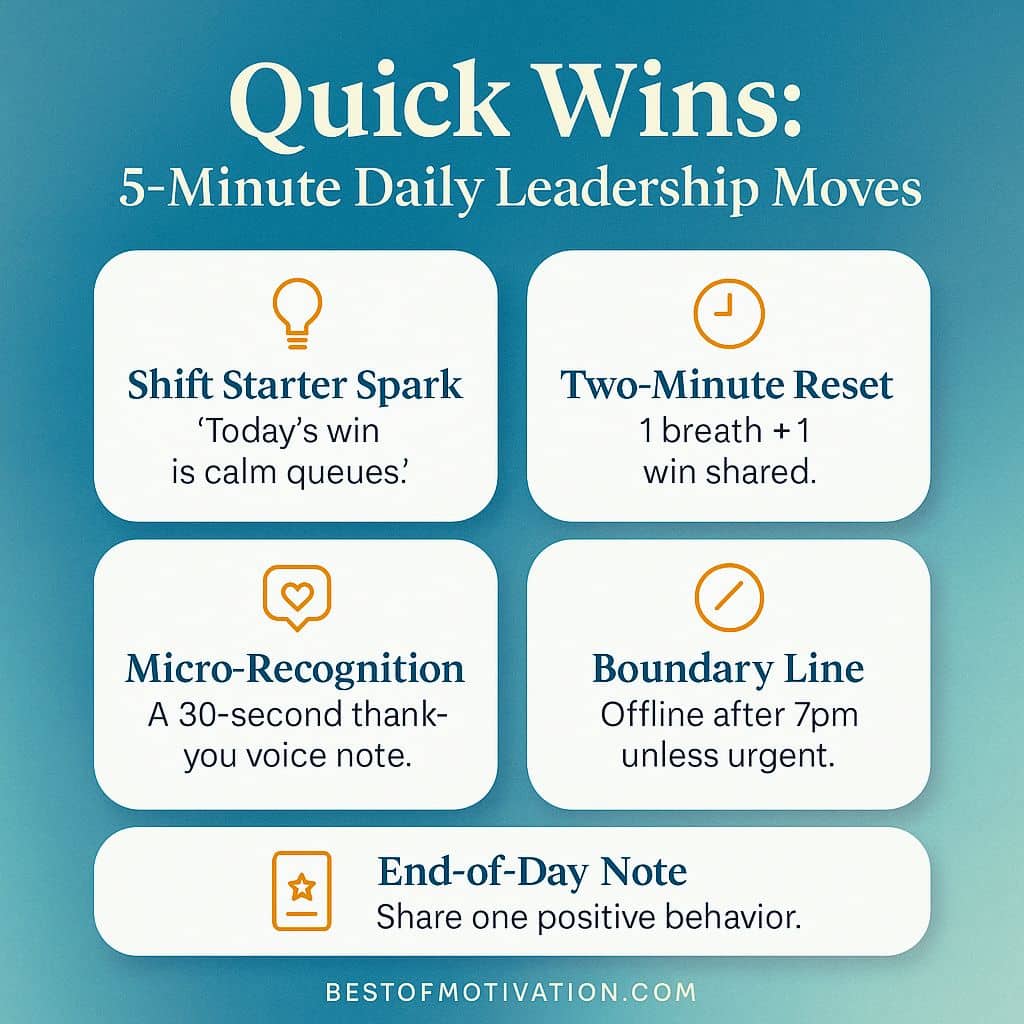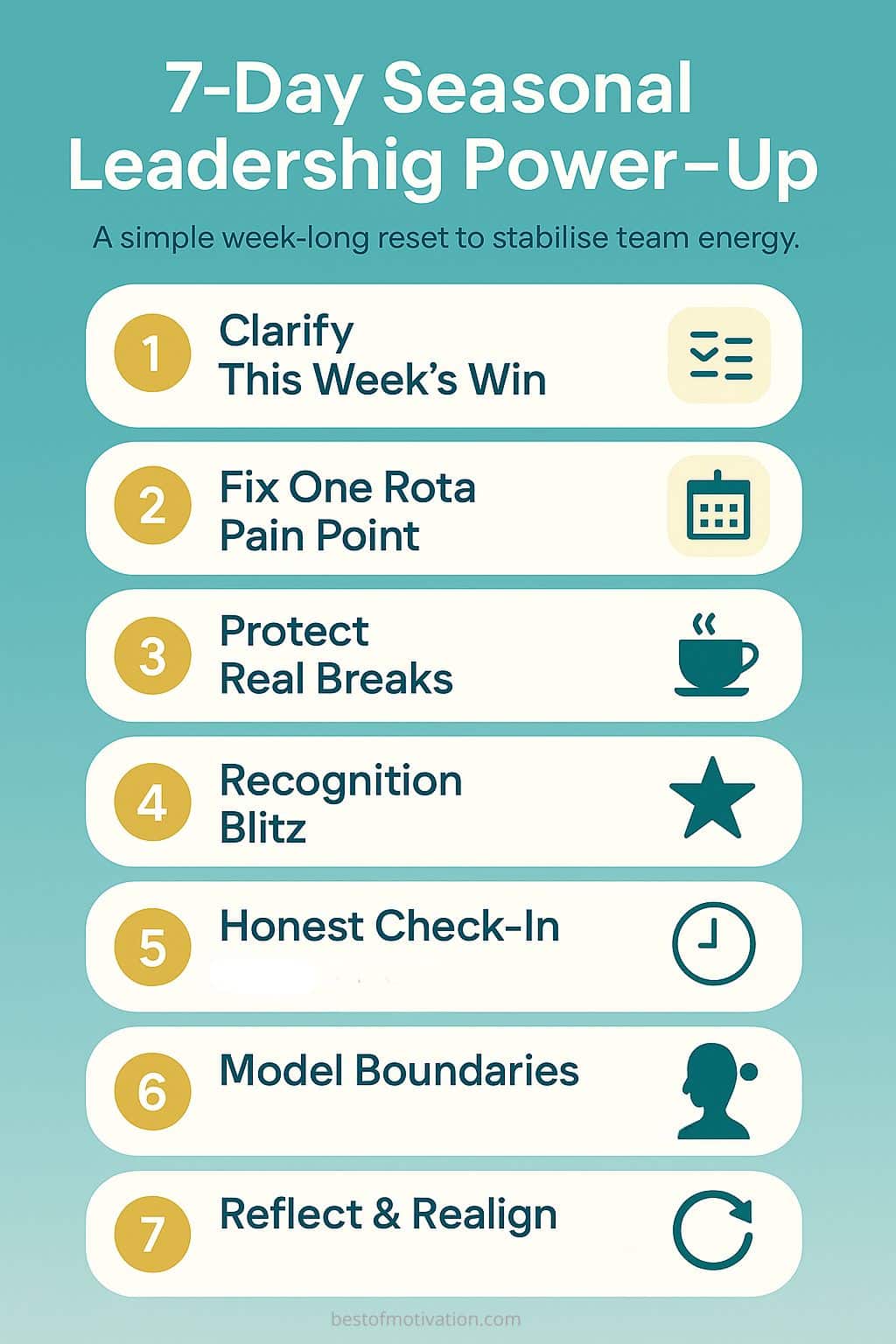
When the rush hits, it feels like everything lands on your team at once — queues, complaints, shifting rotas, tougher targets, and emotional customers.
You’re leading from the middle: pressure from above, emotions from below. But here’s the truth: busy seasons are leadership seasons.
Related: How to Improve Leadership Skills
Busy-Season Burnout Statistics
- 72% of frontline workers report increased stress during peak seasons.
- 54% say unclear expectations make busy periods significantly harder.
- 47% show burnout signs by week 3 of the holiday rush.
- Recognition reduces turnover by up to 28% (Gallup).
Sources: Gallup, McKinsey, Harvard Business Review, Mental Health Foundation
Busy Seasons: A Real Leadership Test
Peak periods create pressure across:
- Time — more tasks, less recovery
- Money — tighter budgets, higher expectations
- Family — holidays, childcare, time strain
- Customers — more emotion, less patience
- Senior leaders — “do more with less” attitudes
You can’t control customer numbers — but you can control how your team experiences the season.
This is the moment people remember you for — not calm weeks, but chaotic ones.
How Burnout Shows Up on Your Team in Busy Seasons

Burnout doesn’t explode overnight — it whispers first.
Individual Burnout Signs
- Irritability, sarcasm, emotional withdrawal
- More mistakes or forgetting simple tasks
- Chronic lateness or staying late
- Stopping humour, ideas, or team interaction
Team-Level Warning Signs
- Tension, eye-rolling, or snappy behaviour
- More customer complaints
- “After Christmas, I’m gone” comments
- A flat, low-energy atmosphere
Support your employees with this:
Retail Worker Burnout: 5 Ways to Beat Stress During Busy Seasons
The 5R Framework: Your Busy-Season Leadership Plan

- Reprioritise
- Reset Expectations
- Recognise
- Resource
- Role Model
1. Reprioritise
Pick your top three must-win outcomes and say clearly what can wait until after the season.
2. Reset Expectations
- Calm queues > perfect upselling
- Safety > speed
- No after-hours messaging unless urgent
3. Recognise
Keep it specific, sincere, and frequent. Daily recognition improves engagement and retention.
4. Resource
Burnout often comes from broken systems — rota issues, unclear processes, missing tools. Fix early, fix small.
5. Role Model
Your emotional tone is contagious. Take breaks. Finish on time. Speak calmly.
Quick Wins: 5-Minute Daily Leadership Moves

- Shift Starter Spark: “Today’s win is calm queues.”
- Two-Minute Reset: 1 breath + 1 win shared.
- Micro-Recognition: A 30-second thank-you voice note.
- Boundary Line: “Offline after 7pm unless urgent.”
- End-of-Day Note: Share one positive behaviour.
7-Day Seasonal Leadership Power-Up

A simple week-long reset to stabilise team energy.
- Day 1 — Clarify This Week’s Win
Share the 3 outcomes that matter most. - Day 2 — Fix One Rota Pain Point
Make one improvement or explain constraints. - Day 3 — Protect Real Breaks
Ensure breaks happen — no shortcuts. - Day 4 — Recognition Blitz
Give three targeted shout-outs. - Day 5 — Honest Check-In
Support the person who seems drained. - Day 6 — Model Boundaries
Finish on time + schedule messages. - Day 7 — Reflect & Realign
Capture wins & improvements.
Free Resource: Reset your energy and leadership clarity with the 7-Day Realign Challenge PDF.
Frequently Asked Questions
How can I motivate my team during busy seasons?
Use clarity, daily recognition, and remove friction points.
How do I prevent burnout?
Protect breaks, simplify processes, and check in emotionally.
How do I balance targets and wellbeing?
Energy fuels performance — protect energy first.
What is the 5R Framework?
Reprioritise, Reset Expectations, Recognise, Resource, Role Model.
Why You Can Trust This Playbook
This guide reflects real-world leadership experience and aligns with research from:
Your Next Move
Reset Your Own Energy
Grow Long-Term
Conclusion: Lead With Clarity, Calm, and Consistency
Busy seasons will always return — but burnout doesn’t have to. When you lead with clarity, protect energy, and recognise your team consistently, you create a workplace where people feel supported even under pressure.
The 5R Framework isn’t just a strategy — it’s a leadership mindset. Use it consistently and your team will trust you more every year.
Transform Your Busy Season with the 5R Leadership Toolkit
Lead stronger, reduce overwhelm, and bring clarity to your team. Get the complete Excel, PDF & Notion toolkit — built to help modern leaders simplify decisions and stay in control.
Get the 5R Leadership Toolkit →Instant download • Editable formats • Proven in real retail leadership











